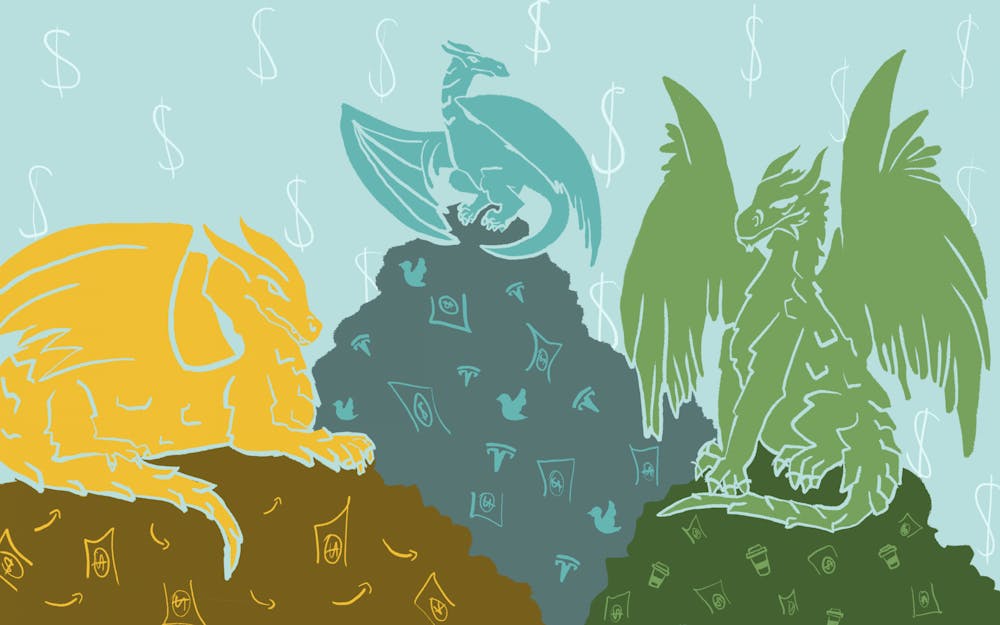When former Starbucks CEO Howard Schultz testified before the Senate Health, Education, Labor and Pensions Committee, he stated that he finds the term “billionaire” to be “unfair.”
“Yes, I have billions of dollars,” he said. “I earned it, no one gave it to me. And I’ve shared it constantly with the people of Starbucks.”
Though he’s never flat-out said it, this isn’t the first time Schultz has implied that “billionaire” is something akin to a slur: in 2019, he offered the phrases “people of means” or “people of wealth” as alternatives.
Let’s set the record straight right away — no matter what Schultz is insinuating, “billionaire” is not a slur because billionaires, like Schultz, hold immense power. In no world can that word be compared to words that have actually historically been used to belittle, degrade and dehumanize marginalized communities. Using thinly veiled references to legitimate phrases like “people of color” will not change the fact the “billionaire’s plight” narrative is unequivocally false.
Schultz — a billionaire worth $3.9 billion — is also wrong about one other thing: he did not earn his billions. The simple fact is that nobody can ethically earn a billion dollars. It is not possible. The only way one “earns” such immense wealth is by profiting off of the labor of others. Schultz is a billionaire because of the work he benefits from — the baristas who work in his stores, the managers who run them, the farmers who grow and harvest their coffee beans, the roasters, the bakers, the chefs and so on and so forth.
Collectively, these are the people who, in 2022, earned the Starbucks company $32.91 billion in revenue. In 1987, Schultz bought the company and quickly expanded it to the mammoth it is today, and, on the surface, there is nothing wrong with that. But Schultz, like all other billionaires, cares primarily about his own bottom line more than anything else.
[Related: OPINION: Denouncing the horrors of capitalism]
With a veneer of faux-progressivism, Starbucks has engaged in illegal union-busting practices that were the catalyst for Schultz testifying to the Senate in the first place. It’s flat-out insulting, then, that he argued he’s somehow “shared” his wealth with Starbucks employees when he has demonstrated such a blatant disregard toward their rights as workers.
But Schultz is nowhere near the top of the food chain with his measly $3.8 billion. Elon Musk, the richest person in the world, is worth $188.3 billion, according to Forbes. That is just about $64 billion more than Jeff Bezos, his runner-up
Writing the number “$185 billion” on a page does no justice to how much it actually is. It is simply an unimaginable amount of money. It is nearly impossible for the average person to fully comprehend. And there is absolutely no reason why any one person should have so much when so many have so little.
Which is why I’m a supporter of expanding our current progressive tax bracket to both increase the number of brackets and intensify the burden on the ultra wealthy. Right now in the U.S., the highest tax bracket for a single filer is 37% on everything over $539,900.
Frankly, there is nothing equal about an individual making $600,000 a year paying the same amount of income taxes as somebody making 10 times that or more.
I’m personally a fan of Rep. Alexandria Ocasio-Cortez’s suggestion of a 70% tax rate on the richest Americans, those making over $10 million a year. But I also wouldn’t shed a tear if the top rate was higher than that, perhaps even 91% as it was under former President Dwight Eisenhower.
It just makes sense: in a truly equitable world, those who make more would pay a higher proportion of taxes than those who make less. A flat tax, while seemingly equal, would end up a heavier burden on the poor than it would on the rich.
This is also how we pay for the sort of vast social safety net programs progressives have been asking for. Sen. Bernie Sanders has a section of his website dedicated to how he would pay for his plans, and most of them — including free college, Medicare for All and the Green New Deal — revolve around some sort of income tax on the wealthy.
However, even after all this, it’s likely most current billionaires will still be billionaires — they just have that much money. Nevertheless, redistributing their wealth in this way is a step in the right direction. In an ideal world, billionaires wouldn’t exist. But, if they already do, it’s our ethical responsibility to squeeze them for as much as possible.
Joey Sills (he/him) is a sophomore studying journalism and political science.




